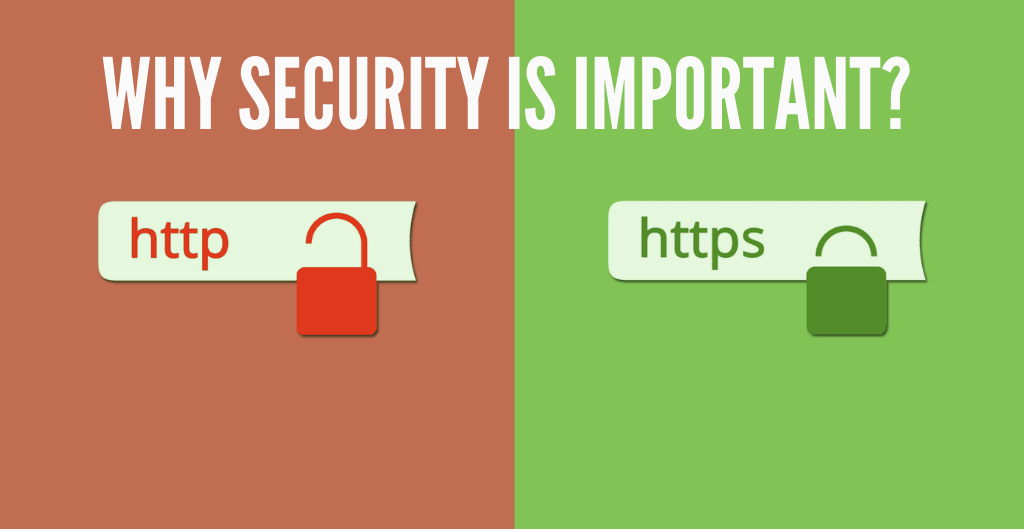In recent years, website security has loomed large, prompting major web platforms such as WordPress and powerful search engines such as Google to roll out various updates. This should be taken as a sign for website owners, as well as those who wish to create their own websites, to follow suit. This security is best achieved by switching to HTTPS and optimising it with an SSL certificate.
Curious to find out more about them and why they are such a must today? This article will take you through the various factors that come into play, their advantages and their implementation.
HTTPS, so what is it exactly?

HTTPS or Hyper Text Transfer Protocol Secure, as its name implies, is a safe hypertext transfer protocol. It is a more secure variant of the HTTP protocol that all websites use to send and receive information. The HTTPS protocol allows the encryption of the different information that circulates between websites to create more reliable and secure data transfers. It is a standard for all e-commerce sites, but especially for search engines such as Google.
HTTPS protocols offer Internet users different levels of security. These levels are based on data encryption using an algorithm that can only be accessed by the recipient. They are also reinforced by a process that verifies domains and their validity. Switching to HTTPS therefore provides sites with a layer of security that secures data exchanges. Using security certificates also enables the identity of their creators and certification bodies to be verified.
Why migrate a HTPP website to HTTPS?
There are several reasons why you may want to migrate your HTTP site to HTTPS. First and foremost, it is an obligation imposed by Google since the 23rd of October 2017. With its “HTTP Everywhere” program, the search engine favours sites that use the HTTPS protocol. These sites are recognisable by a green padlock marked HTTPS in the bar of your browser. Those marked with a grey padlock with a red cross are non-secure sites.
The HTTPS protocol therefore meets Google’s requirements, but not only. Platforms such as WordPress and Apple also favour secure sites. This protocol is also necessary for the creation of valid AMP pages and integration into the Google Shopping feed. It is also a way around the “Not secure” label on major browsers such as Google Chrome, Firefox and Safari.
Switching to HTTPS also ramps up security thanks to the integration of an SSL certificate. This makes the theft of identifiers or information impossible and transactions on e-commerce sites more secure. This approach is also useful to reassure Internet users, who have more confidence in sites that carry this reference, as they prevent all third party attacks.
On the other hand, the use of an HTTPS protocol can be an advantage for natural referencing. After all, Google’s algorithms favour secure sites, ensuring them a better ranking than non-secure sites. Therefore, not having a site in HTTPS can lead to positioning penalties.
How to switch your site to HTTPS?
Switching a site to HTTPS calls for certain technical skills, which is why a professional needs to be brought in if you’re not familiar with the backend of your web platform. This process is carried out in several specific steps:
- Purchase of an SSL certificate.
- Complete back-up of the site.
- Configuration of the internal links so that they direct to HTTPS.
- Updating of code libraries and third party plug-ins.
- Redirecting external links to HTTPS.
- Updating of htaccess applications to redirect traffic to HTTPS.
- Updating of SSL settings.
- Implementation of 301 redirects in each page.
- Configuration of the HTTPS site in Google Analytics and Google Search Console before forwarding the sitemap again.
- Testing the new configuration and the functioning of the redirects.
The SSL certificate, what is it and why use it for your website?

SSL is a key factor for the security of your website and its transition to HTTPS. Read through this useful information that will help you understand what is at stake and why its purchase is essential.
Definition of the SSL certificate
SSL or Secure Socket Layer is a certificate that secures the connection between a visitor and the server of a site thanks to a high level of encryption. It is a digital certificate that is the equivalent of an identity card on the Internet. SSL thus secures all information exchanges by making hacking impossible.
The importance of the SSL certificate
Implementing an SSL certificate on a website is an ideal way to make the transport of information more reliable. It is therefore essential for:
- Banking transactions on the internet
- Intranet traffic at organisation level
- Production flows
- Connections between mail servers and their mail clients
- Web applications
- File transfers
- Connections to network traffic and networks using SSL VPNs
- Cloud-level platforms
The different types of SSL certificate
There are 3 main types of SSL certificate:
- The Domain Validation SSL Certificate – normal certificate allowing classic encryption.
- The Enterprise Validation SSL Certificate – certificate including authentication of the person or company that owns the domain name.
- The Extended Validation SSL Certificate – a high-security certificate. It verifies the legal, operational and physical existence of the exclusive right to use the domain name, the agreements for issuing the certificate, etc.
The suppliers of SSL certificates
SSL certificates are offered by various trusted third parties or certificate authorities. These third parties issue them and sign them to indicate the link between the physical or moral identity of the applicant and the site concerned. These authorities include Let’s Encrypt, GlobalSign, Symantec and ChamberSign France. They offer certificates whose cost may depend on the actual security requirements. The price usually ranges from a few dozen to a few hundred euros.
Implementing a SSL certificate on a website
An SSL protocol is essentially installed and applied on the hosting of your website. As it calls for some degree of technical skill and knowledge of 301 redirects, the process must be entrusted to a specialist. Of course, you will have to choose a good certificate beforehand and carry out the necessary steps to convert your site to HTTPS.
Conclusion

If your website is not yet HTTPS, it’s high time you made the switch. With a secure site, you will reassure your customers, partners and prospects and improve its referencing on search engines. It will also make all transactions and data exchanges on your platform more reliable. And finally, check with a monitoring tool such as internetVista that your certificate is still valid!
